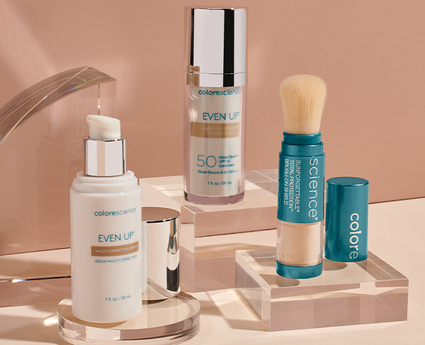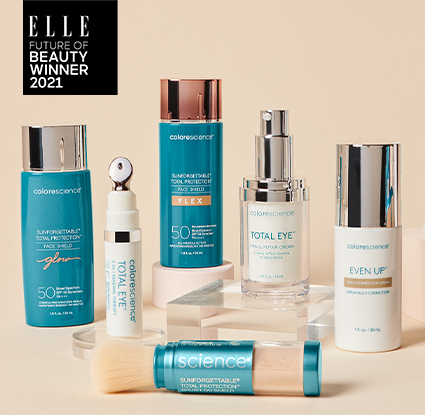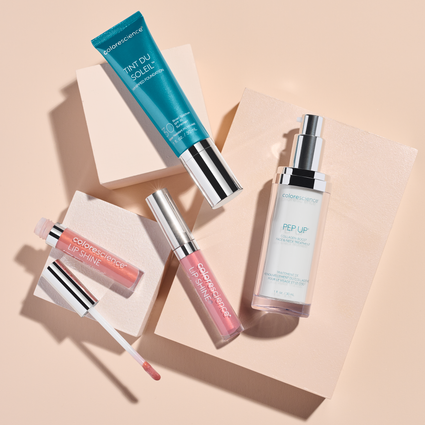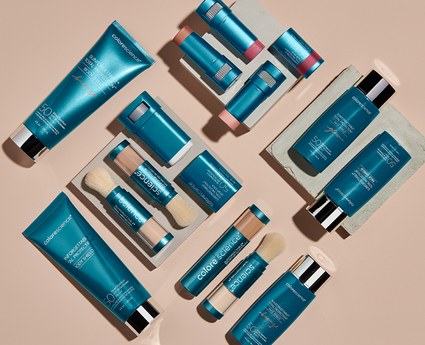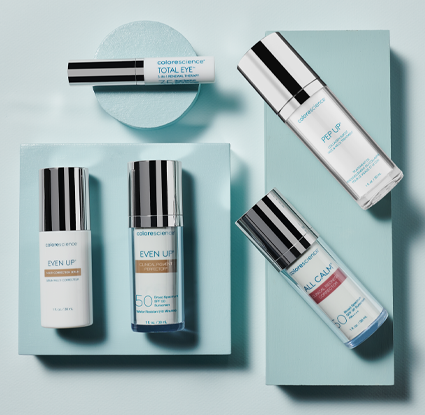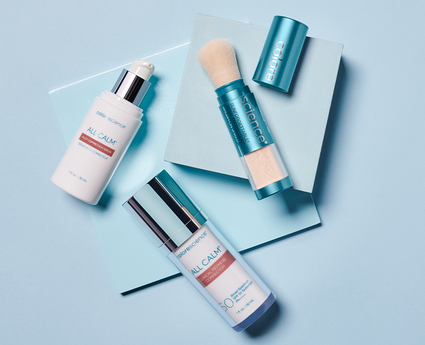Can You Put Sunscreen on Your Lips?
When you think about sun protection, you probably reach for sunscreen to cover your face, arms, and shoulders — but what about your lips? This delicate area often gets overlooked, yet it’s just as vulnerable to sun damage as the rest of your skin. So, should you put sunscreen on your lips?
Lip sun protection is crucial, and fortunately, there are lip-specific sun-protection solutions designed to keep your lips soft, healthy, and free from painful burns.
Sun exposure can dry out, crack, and burn your lips. Prolonged damage may result in premature aging and potentially more serious health issues. That’s why sun safety awareness is so important.
In this guide, we’ll cover everything you need to know about keeping your lips safe in the sun. You’ll learn why sunscreen on lips matters, how to apply it properly, and which products offer the best protection.
Let’s make sure your lips stay smooth, hydrated, and sunburn-free.
- Can you use regular sunscreen on your lips?
- Why your lips need sun protection
- Best types of sunscreen for lips
- How to apply sunscreen to your lips
- Signs of lip sunburn and how to treat it
- Lip sun protection products to try
- Protect your lips with sunscreen
Can you use regular sunscreen on your lips?
Technically, regular sunscreen on your lips can work, and some sun protection is better than nothing at all, but it’s not always the best option. Body sunscreen isn’t made for the thin, sensitive skin on your lips and can sometimes cause irritation or dryness. Plus, since it’s easy to lick your lips accidentally, you could end up ingesting some of it.
That’s why using sunscreen specifically designed for lips is a better choice. Lip balms or sticks with SPF are formulated to be safe and moisturizing, protecting your lips without the risk of irritation. They’re also easier to reapply throughout the day, which is essential for consistent sun protection.
When choosing the right product, it’s important to check the ingredients. Avoid sunscreens containing oxybenzone, which can be harsh and irritating. Instead, look for mineral-based options like zinc oxide or titanium dioxide. These ingredients are gentler and provide broad-spectrum UV protection.

Why your lips need sun protection
Your lips are more sensitive and prone to burning than the rest of your skin because they lack melanin, which is the pigment that protects your skin from UV rays. This makes them more vulnerable to sun damage, even during short periods of sun exposure.
Skipping sunscreen on your lips increases the risk of painful sunburn, premature aging like fine lines and discoloration, and even serious conditions like skin cancer.
The skin on your lips is also thinner and more delicate than the skin on the rest of your body. It doesn’t have oil glands, which makes it more likely to dry out and crack. That’s why your lips need sun protection just as much as your face and body.
Applying sunscreen on lips keeps them hydrated and safe, reducing long-term damage while keeping them soft and healthy.

Best types of sunscreen for lips
Protecting your lips from sun damage starts with the right products. Choose a lip balm with SPF that’s specifically formulated for your lips.
Unlike regular sunscreen, these balms provide gentle but effective UV protection. They also help prevent common issues like dryness, chapping, and peeling, which can worsen with sun exposure.
The best SPF lip balms do more than shield your lips from harmful rays. They also lock in moisture, keeping your lips soft and comfortable throughout the day. Choose products with nourishing ingredients like shea butter, coconut oil, or vitamin E, which offer deep hydration.
A broad-spectrum SPF formula shields against UVA and UVB rays, helping to prevent sunburn and minimize long-term damage.
Reapplying your SPF lip balm regularly, especially when you’re spending time outdoors, helps maintain consistent protection. With the right combination of sun defense and hydration, you can keep your lips healthy, smooth, and safe in any season.

How to apply sunscreen to your lips
Applying sunscreen to your lips is simple, but doing it right makes all the difference in keeping them safe and healthy. Lips are more vulnerable to sun damage because their skin is thinner and lacks melanin, so proper protection is essential.
Follow these steps to ensure complete coverage and avoid product waste:
-
Choose the right product: Pick a lip balm or sunscreen made specifically for lips with at least SPF 30.
-
Prep your lips: Ensure your lips are clean and dry so the product sticks better and lasts longer.
-
Apply evenly: Spread a generous, even layer across your upper and lower lips. Don’t forget the corners of your mouth—this area often gets overlooked and is just as prone to sunburn.
-
Reapply regularly: For maximum sun protection, reapply your SPF lip product every two hours, more often if you’re eating and drinking.
-
Avoid product wastage: Use enough to coat your lips without excess buildup. If you’re using a stick balm, swipe it two or three times. For creams or lotions, a small dab spread evenly will do the job.
Consistent application keeps your lips soft, hydrated, and well-protected all day.
Signs of lip sunburn and how to treat it
Sunburned lips can be uncomfortable and painful, and it’s important to treat them quickly to avoid further irritation. If your lips have had too much sun exposure, you might notice these common symptoms:
-
Redness and swelling: Lips may appear inflamed and feel tender to the touch.
-
Dryness and peeling: The skin on your lips might start flaking or shedding.
-
Cracking: Severe dryness can lead to painful splits in the skin.
-
Blisters: In some cases, small fluid-filled bumps can form.
-
Soreness or a burning sensation: Your lips may feel sensitive, warm, or sting.
If your lips are sunburned, start by keeping them cool and hydrated. Apply aloe vera gel for its calming and anti-inflammatory properties. Follow with a gentle, fragrance-free lip balm with moisturizing ingredients like shea butter or coconut oil to prevent further dryness and cracking.
Drinking plenty of water also helps keep your lips hydrated from within.
Additionally, avoid picking at peeling skin and stay away from harsh or exfoliating products until your lips heal. If the pain or swelling is severe, an over-the-counter pain reliever like ibuprofen can reduce discomfort. Treating your lips with care will help them heal faster and feel better sooner.

Lip sun protection products to try
Keeping your lips safe from UV damage is just as crucial as protecting the rest of your skin. Investing in high-quality sun protection for lips keeps them hydrated, smooth, and shielded from harmful rays.
Our sunscreen solutions are designed to nourish and protect, so your lips stay healthy and beautiful.
Peptide Lip Shine SPF 30
Choose Peptide Lip Shine SPF 30 for a perfect blend of moisture, protection, and a pop of color. This gloss hydrates and plumps your lips with hyaluronic acid, vitamin E, and powerful peptides while offering all-mineral SPF 30 protection.
Available in versatile shades like Pink, Coral, and a warm nude Savanna, it enhances your look while protecting your lips from sun exposure. Its smooth, non-sticky formula makes it easy to wear daily—just reapply every two hours for continuous shine and protection.
Sunforgettable Total Protection Color Balm SPF 50
For a multitasking product that adds color and protection, the Sunforgettable Total Protection Color Balm SPF 50 is a must-have. This all-mineral balm protects against UVA/UVB, pollution, and blue light while hydrating your lips, cheeks, and eyelids.
With buildable color in shades like Berry, Bronze, and Golden Hour, it lets you customize your look while delivering SPF 50 protection. Apply directly with your fingers or a brush for the perfect finish.
Protect your lips with SPF lip balm
Making lip protection part of your daily routine is one of the simplest ways to keep your lips healthy and beautiful. Whether heading out for a beach day or just running errands, your lips are constantly exposed to the sun’s rays.
Applying sunscreen on lips helps prevent painful burns, dryness, and long-term damage — so yes, you absolutely should put sunscreen on your lips.
Consistency is key when it comes to sun protection. Choose a product that suits your needs, whether you prefer a hydrating gloss or a tinted balm. To ensure maximum coverage and care, reapply at least every two hours, especially after eating, drinking, or spending time in the water.
For lip products that offer both beauty and protection, Colorescience delivers. Nourishing, sun-protective formulas help you maintain soft, smooth, and sun-safe lips without sacrificing style. Take care of your lips today — you will be thankful tomorrow.

